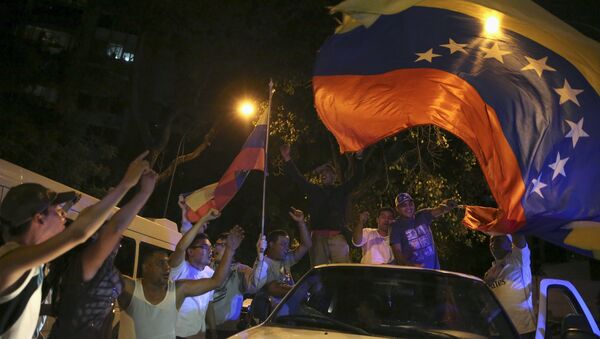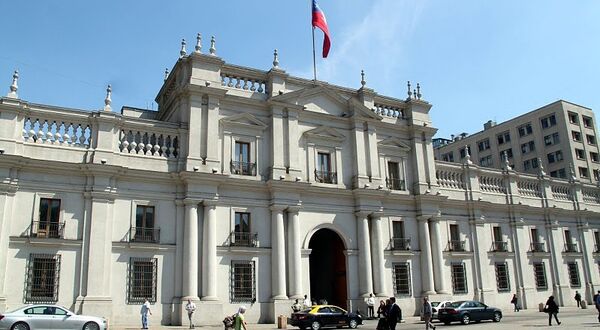The recent elections in Argentina and Venezuela have left some observers in shock since they hadn't anticipated a right-wing victory. It was assumed that Cristina Fernandez de Kirchner's political successor, Daniel Scioli, would win the Argentine Presidency, just as it was believed that the United Socialist Party would come out on top in Venezuela's elections. Both prognoses proved to be incorrect, leaving some analysts puzzled about what they had misjudged. Understanding what happened in Argentina and Venezuela is of urgent importance because Brazil seems to be on the cusp of undergoing the same shift (albeit via a possible impeachment), with all three countries experiencing similar ‘warm-up' phases which suggests that a larger political process is underway.
Warming Up
If one compares the lead-up to the surprising elections in Argentina and Venezuela, as well as the situation currently ongoing in Brazil, then it's plain to see that three particular factors are at work:
Social Preconditioning:
All opposition parties, be they left-wing or right-wing, engage in this practice prior to elections, but given that the focus is on how the latter have come to power or are threatening to do so in what were believed to be entrenched left-wing states, a few words will be said about their specific practices. The concept here is that these parties actively canvass their countries and promote the idea that leftist economics is an inherent failure that is never destined to succeed. Their goal is to convince the voters that they'd better change their electoral minds now instead of wait for the seemingly inevitable meltdown that they preached was doomed to happen sooner or later. These scare tactics are engineered precisely to exploit the population's general anxiety about the future by taking their present economic difficulties out of context and purposely misattributing them to the general ideology of the current leadership.
Structural Shifts:
While some of the population is aware of the international economic factors impacting on their countries, others have no idea or believe that such talk is ‘irrelevant' or a ‘conspiracy theory'. Argentina and Venezuela have fallen victim to a vicious policy of economic warfare waged by the US, with Washington using vulture funds against Argentina and a manipulated global oil price coupled with sanctions in destabilizing Venezuela. Concerning Brazil, the global commodities slump and relative Chinese economic slowdown have stolen the momentum from the country's previous decade-long surge, with both factors being beyond the control of any Brazilian leader. Altogether, right-wing canvassers in these three countries are taking advantage of these external factors to argue that a purposeful structural shift back to neo-liberal economics is necessary to save their country, conveniently leaving out the larger context about why their people are presently suffering in the first place.
Information Warfare:
Right wing activists have ironically taken a page out of the American leftist playbook by applying one of Saul Alinsky's most cherished "Rules For Radicals", which is to "pick the target, freeze it, personalize it, and polarize it". That's exactly what they've done to Kirchner, Maduro, and Rousseff by finding ways to implicate them in scandalous corruption rackets and resultantly tarnish their reputations whether the accusations were proven true or not. The objective is to ascribe all of their countries' woes to a single individual and then convince the people that they must vote to remove that person and their affiliated political party from power as the only perceived solution. The framing of an individual's economic problems as a personal affair between them and the targeted politician is a common opposition tactic that's thought to motivate the constituency enough that they'll go out and vote in seeking their electoral vengeance.
Game On
Looking at the latest votes in each country, it can be surmised that the population is both divided and confused. Brazil's 2014 presidential election was narrowly won by Dilma Rousseff, just as opposition leader Mauricio Macri narrowly won Argentina's 2015 equivalent, proving in both cases that a near-equal political split is present which could unexpectedly move either way in the future.
In the case of Venezuela, the United Socialist Party suffered an unprecedented and embarrassing loss, but this is mostly explained by many socialist supporters electorally ‘defecting' to the opposition in order to send a protest vote against the unpopular personality of Nicolas Maduro. This signals that the opposition was largely successful in their information warfare campaign and that it temporarily overrode their shortcomings when it came to social preconditioning.
The reason for such close and surprising elections in these countries is because voting is now fair and democratic, unlike during the Cold War years of right-wing dictatorship where the result was always predetermined, if an election was even held at all, that is. South American political culture is notable for these radical political shifts in one direction or the other whether by coup or by democratic conviction, and the natural result has been a deeply polarized electorate.
The recent twists and turns and political back-and-forth is expected to continue into the future, as the only remedy to this endemic instability is a unifying personality that can consolidate his or her political gains and cultivate growing grassroots support. Chavez, Kirchner, and Lula da Silva were the respective embodiments of this criterion for Venezuela, Argentina, and Brazil, but it regretfully seems as though their political successors can't quite harness the political charisma necessary to keep the ‘pink tide' in power.
The Final Score
The US has a strategic interest in weakening Mercosur from within so as to create a competitive continental advantage for the Pacific Alliance, and the rise of the neo-liberal right in Mercosur's three most important economies could potentially do just that. There's the possibility that they could further delay the stalled EU-Mercosur free trade negotiations long enough for the TTIP to enter into force beforehand. If this happens, then it would grant Washington the ultimate say in deciding whether its junior EU economic ‘partner' (by then formally dominated by the US and legally beholden to it) should be allowed to continue with this course of independent action, raising the likely risk that the US will force the project to be completely scrapped. There's also the potential that certain neo-liberal forces could outright remove their country from Mercosur if given the opportunity, and if this happens to Brazil then not only would it lead to the collapse of the entire arrangement, but it could have serious consequences for BRICS as well.
The warning to be heeded is that although voters typically decide elections based on local and visible economic interests and under the influence of convincing campaign slogans and canvassers, their choice could have severe and possibly counterproductive macroeconomic consequences that they're not even aware of at the time, and this could tacitly play into the grand strategic hands of the United States.
The views expressed in this article are solely those of the author and do not necessarily reflect the official position of Sputnik.



